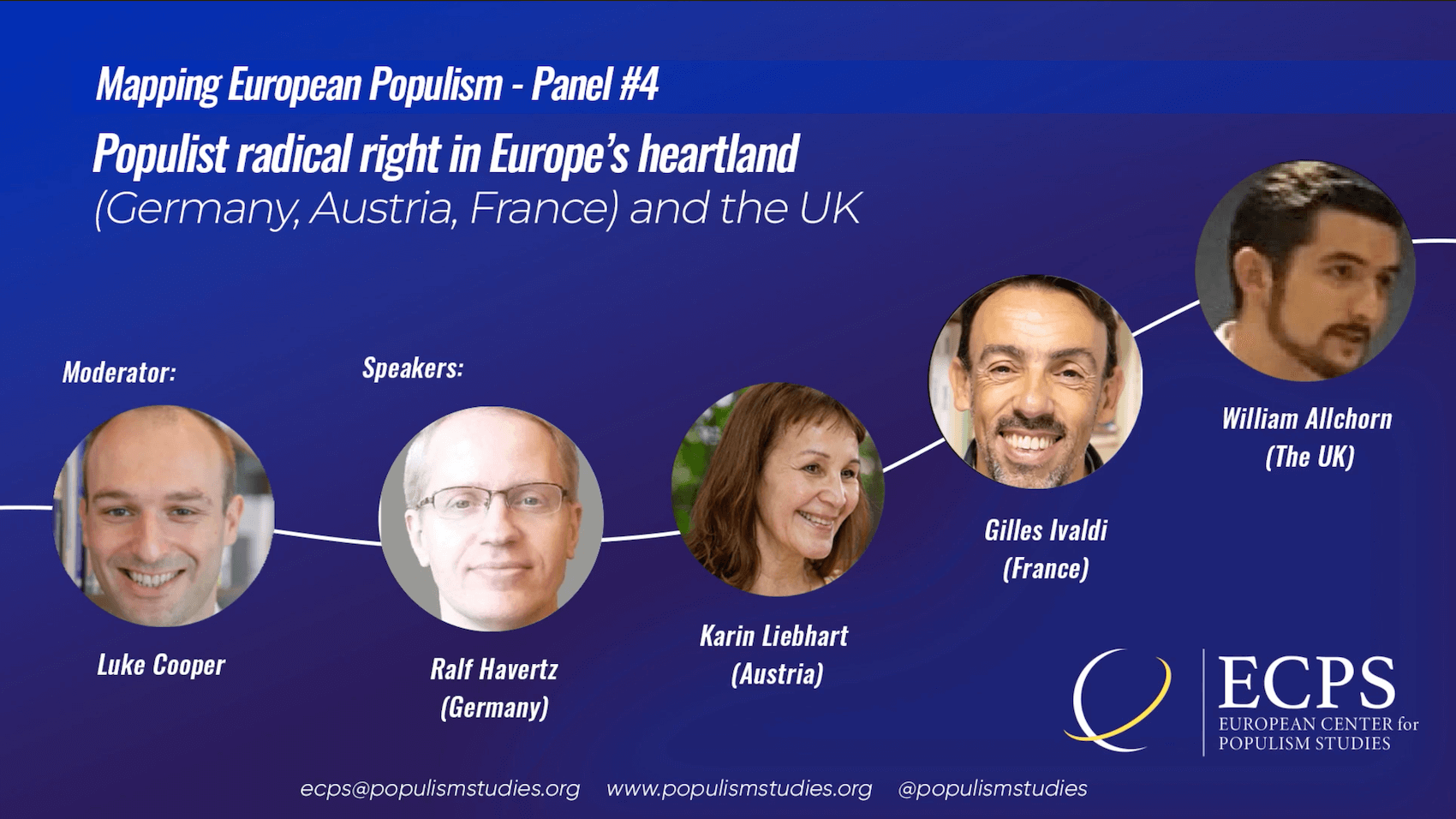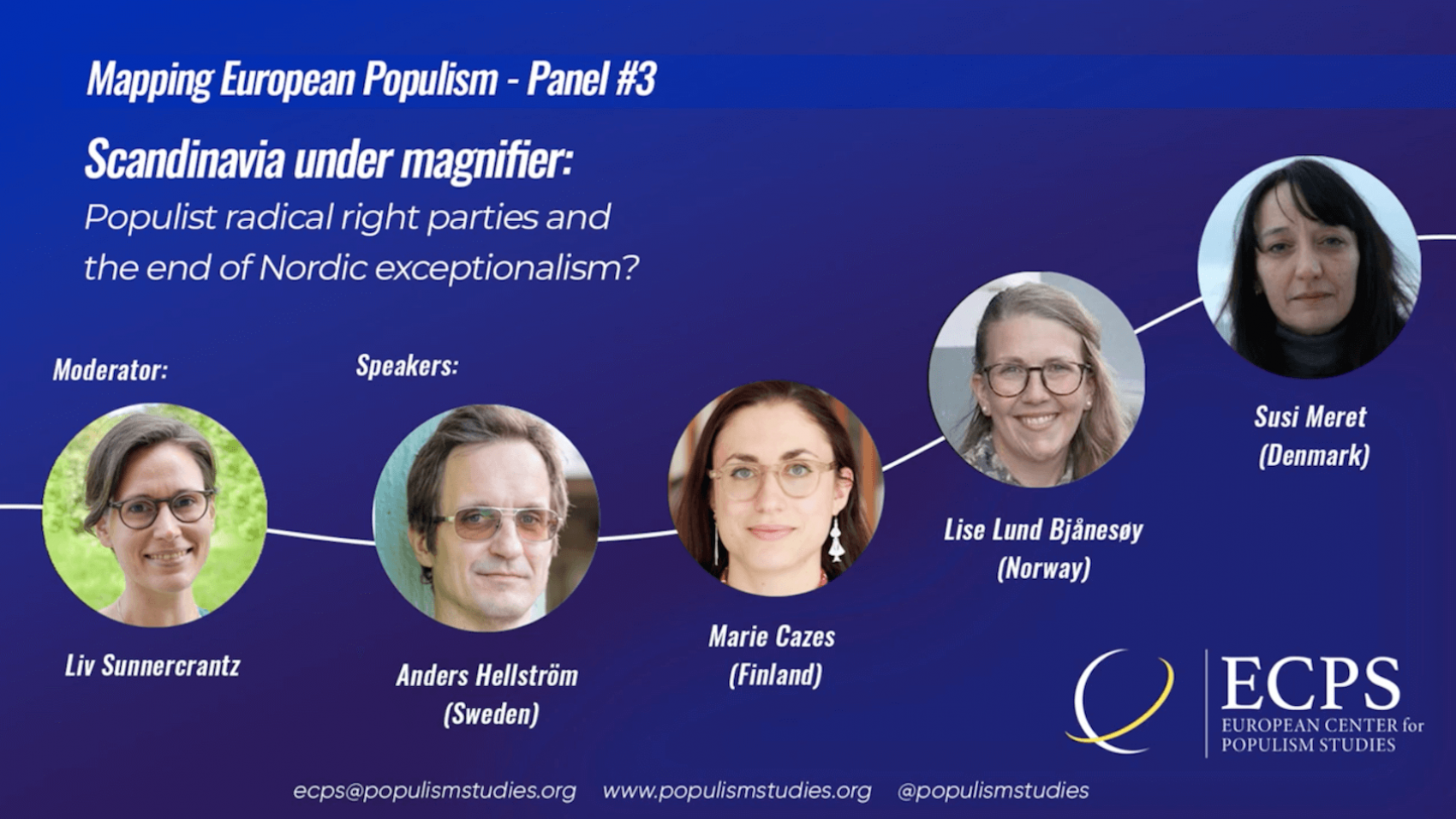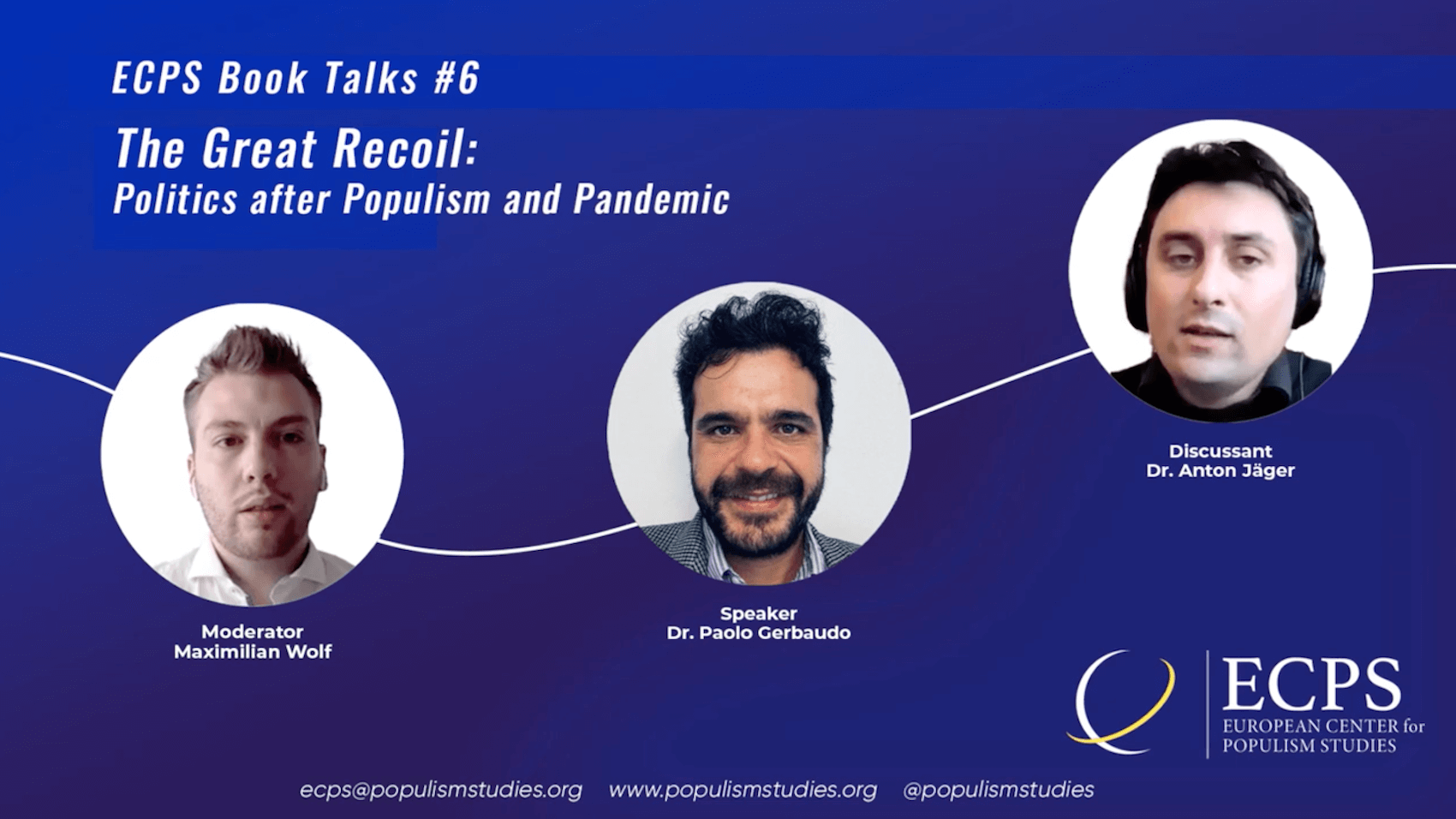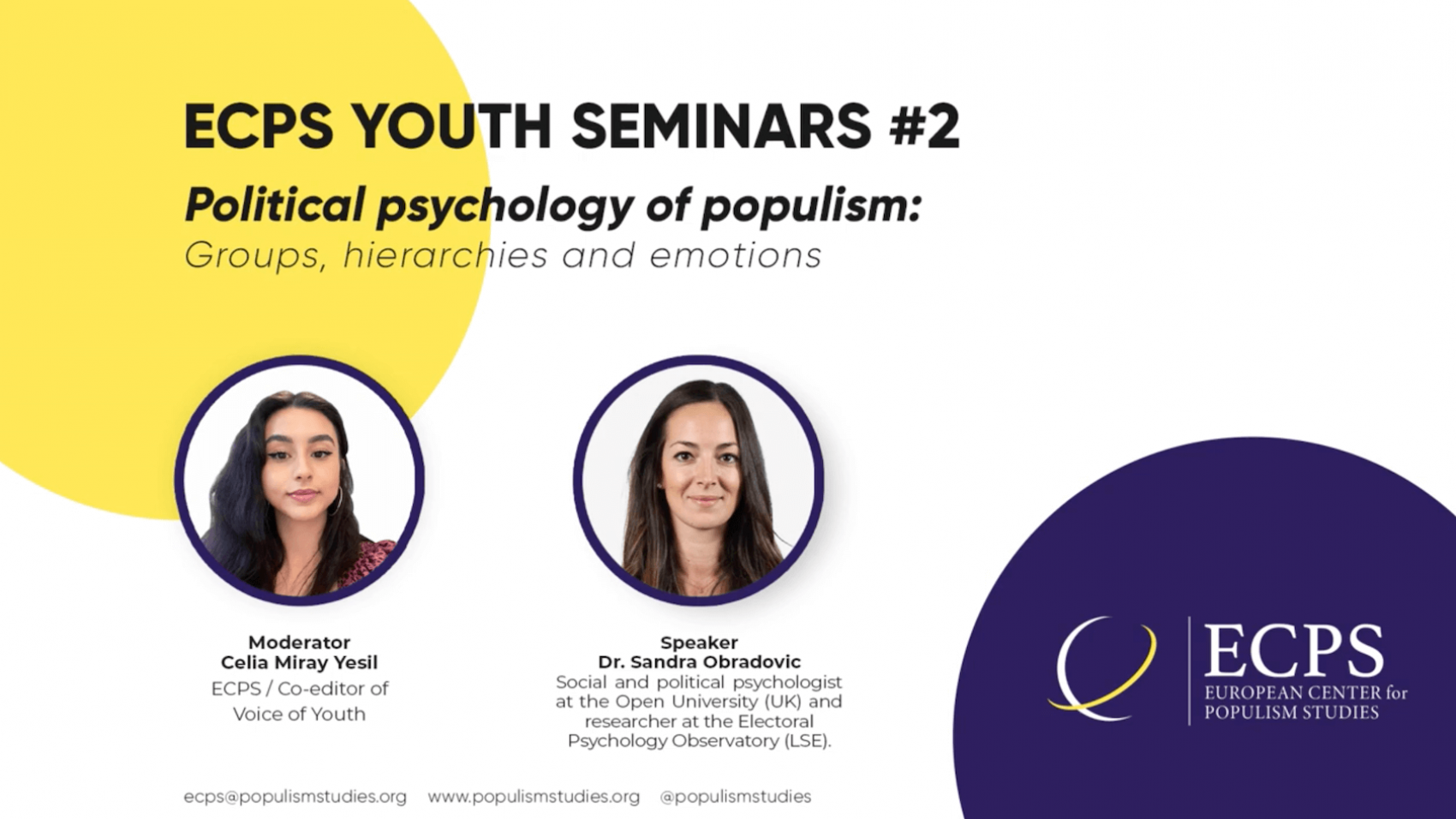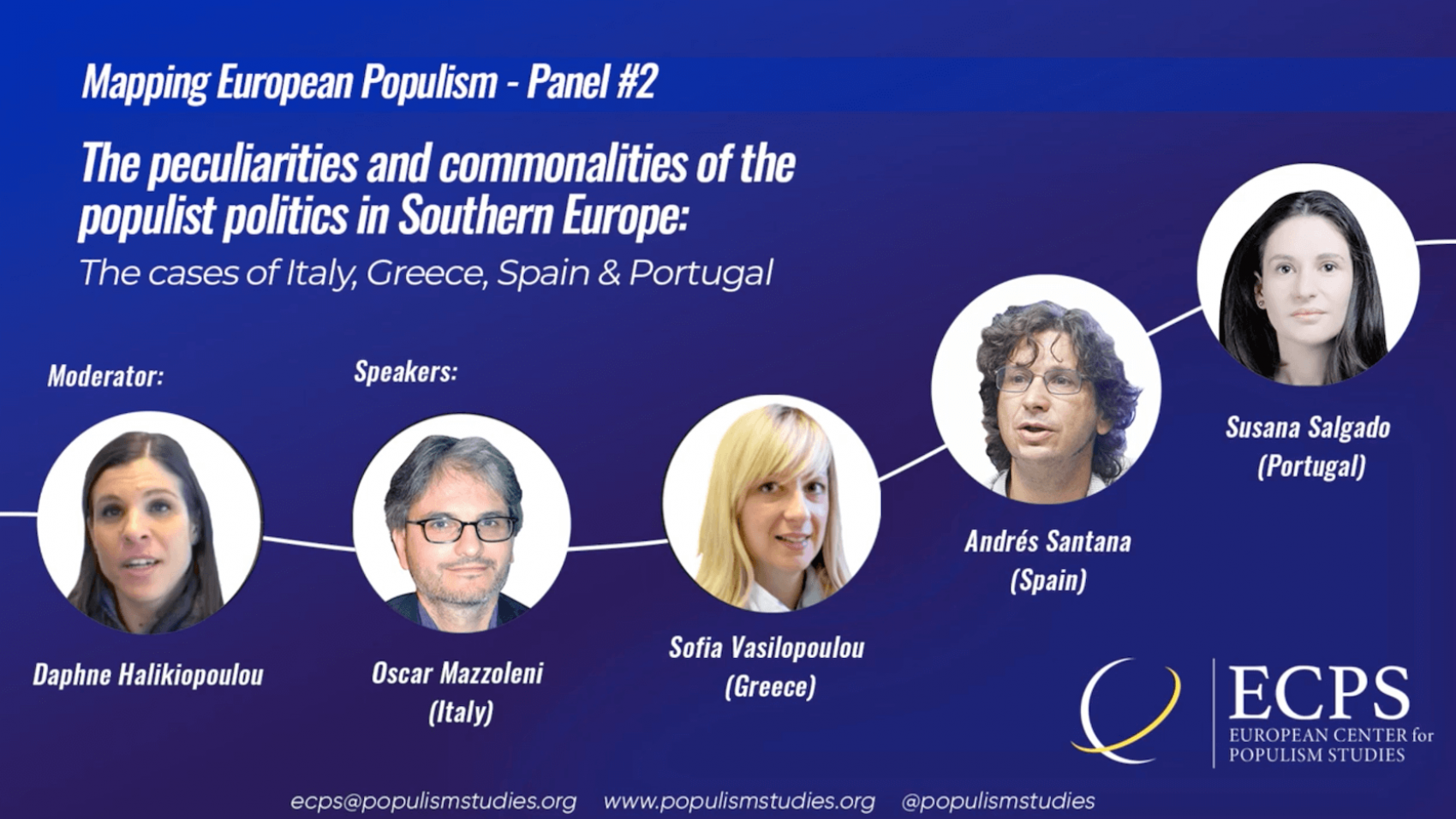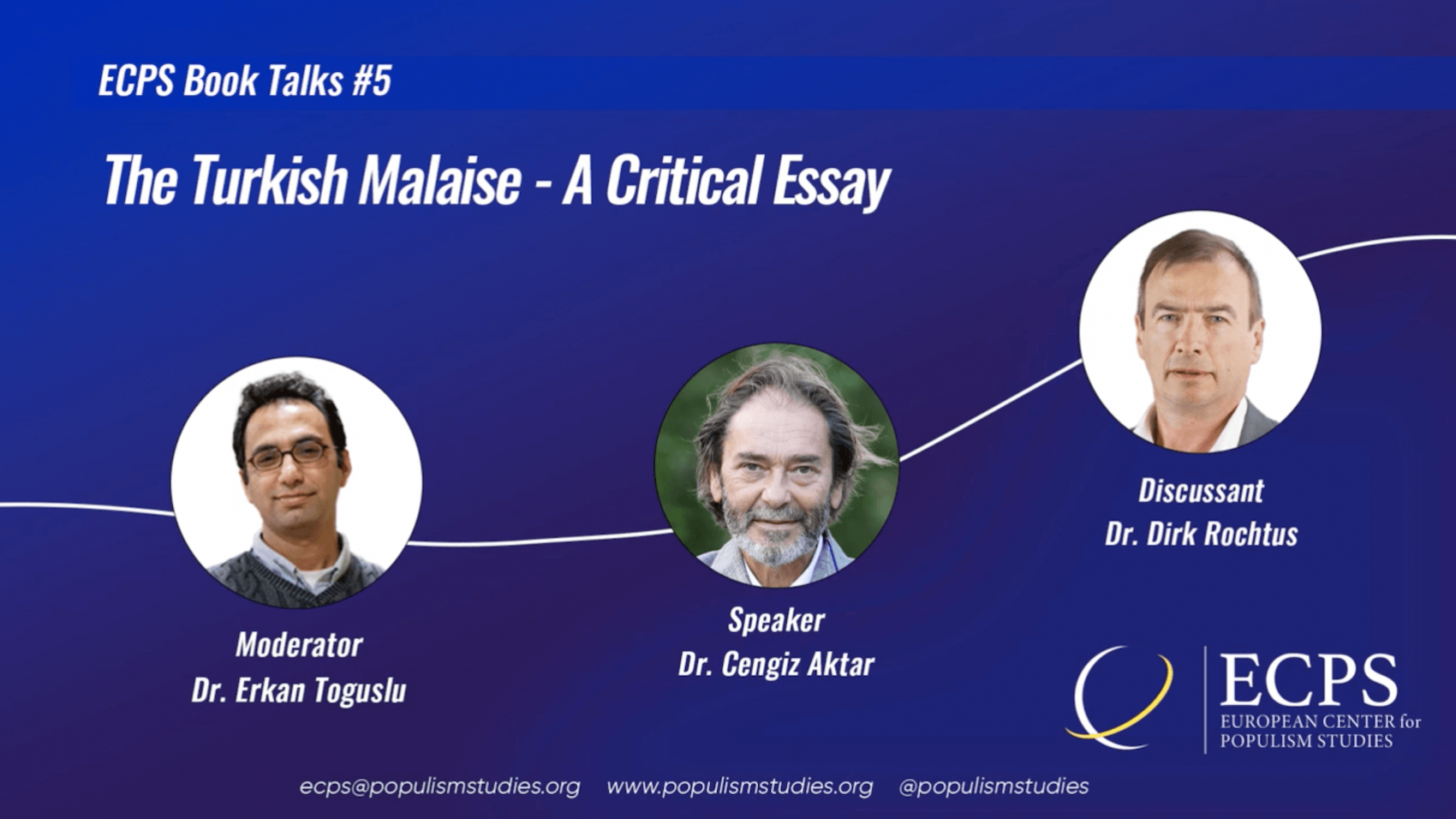Moderator
Dr Luke Cooper (Member of the Conflict and Civil Society Research Unit at the LSE).
Speakers
“The Rise of Radical Right Populism in Germany,” by Dr Ralf Havertz (Associate Professor of International Relations at Keimyung University in South Korea).
“Right-wing Populism and the New Right in Austria — Recent Trends and Manifestations,” by Dr Karin Liebhart (Professor at the Department of Political Science, the University of Vienna).
“The Populist Radical Right in the 2022 French Presidential Election: Party Fragmentation and Electoral Outcomes,” by Dr Gilles Ivaldi (CNRS researcher in political science at the Centre for Political Research at Sciences-Po, Paris).
“From the Margins to the Mainstream: The UK Populist Radical Right at a Time of Transition,” by Dr William Allchorn (Postdoctoral Researcher and Associate Director at the Centre for the Analysis of the Radical Right at the University of Leeds).

